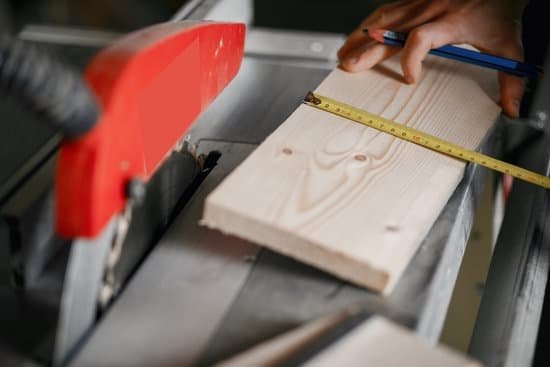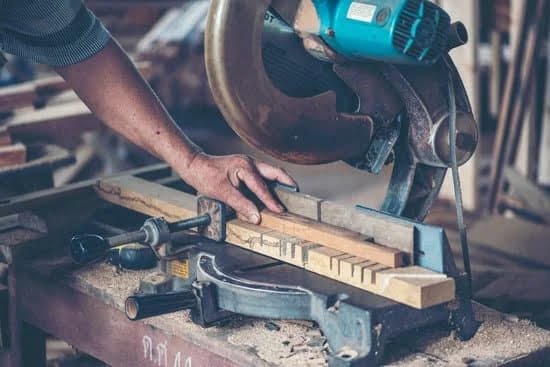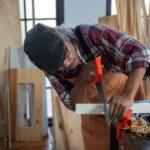Having the right tools and equipment is a must-have for any woodworking shop. Whether you are a hobbyist or a professional woodworker, having the essential tools and equipment is crucial for producing high-quality work and ensuring safety in the workshop. In this article, we will explore the essential tools, safety equipment, workbenches, power tools, measurement and marking tools, specialty tools, and maintenance and sharpening techniques that every woodworking shop must have.
When it comes to woodworking, having the right tools can make all the difference in the quality of your work. From hand saws to power drills, chisels to clamps, each tool serves a specific purpose and contributes to the overall efficiency of your woodworking projects. In addition to tools, safety equipment is also essential in any woodworking shop. Goggles, dust masks, ear protection – these items are crucial for protecting yourself from potential hazards while working with wood.
Furthermore, having a proper workbench and tool storage solutions are also important aspects of a functional woodworking shop. A sturdy workbench provides a stable surface for working on projects, while efficient tool storage ensures that your workspace remains organized and clutter-free. As we delve deeper into this article, we will explore each of these components in detail and highlight their significance in creating a well-equipped woodworking shop.
Essential Tools
In order to have a fully functional woodworking shop, there are several essential tools that must be present. These tools not only make the woodworking process more efficient but also ensure safety and accuracy in the creation of wood projects. From saws to chisels and clamps, having the right tools is crucial for any woodworking enthusiast or professional.
Saws
Saws are a fundamental component of any woodworking shop. A quality table saw is essential for making precise cuts, while a circular saw is handy for cutting larger pieces of wood. Additionally, a good hand saw is necessary for more intricate and detailed cuts.
Chisels
Chisels are indispensable for removing waste wood and creating clean, sharp edges in woodworking projects. A set of different-sized chisels allows for versatility in carving and shaping wood.
Clamps
Clamps are vital for securing wood pieces together during glue-ups or while waiting for adhesives to dry. They provide stability and ensure that the pieces remain in place during the construction process.
A woodworking shop without these essential tools would be incomplete and hinder the efficiency and quality of the work produced. Therefore, investing in high-quality saws, chisels, and clamps is a must-have for any woodworking shop.
Safety Equipment
Safety is paramount in any woodworking shop, and having the right safety equipment is a must for both professional woodworkers and hobbyists. Woodworking involves the use of sharp tools, heavy machinery, and potential exposure to harmful dust and fumes. As such, it is crucial to prioritize safety to prevent accidents and protect oneself from health hazards.
Essential Safety Equipment
Goggles are an essential piece of safety equipment that protects the eyes from flying wood chips, dust, and debris. It is important to choose goggles that fit securely and provide adequate coverage for the eyes.
Additionally, wearing a dust mask or respirator is crucial for preventing inhalation of fine wood dust particles, which can lead to respiratory issues over time. Ear protection is also a must-have for woodworking shops, as exposure to loud power tools can cause hearing damage if proper protection is not worn.
Importance of Safety in a Woodworking Shop
In a woodworking shop, there are numerous potential hazards that can cause injury if precautions are not taken. From sharp hand tools and power equipment to airborne sawdust and noise pollution, being mindful of safety measures can significantly reduce the risk of accidents. Proper training on how to use tools safely and the importance of maintaining a clean and organized workspace is also key in fostering a culture of safety in a woodworking shop.
Caring for Safety Equipment
It’s important not only to have the necessary safety equipment but also to maintain it properly. This includes regularly cleaning and inspecting goggles, replacing dust masks when they become soiled or damaged, and ensuring that ear protection remains effective over time. By taking care of safety equipment, woodworkers can ensure that they provide optimal protection when working with wood.
Workbenches and Tool Storage
A well-equipped woodworking shop must have a sturdy workbench and proper tool storage solutions to ensure a functional and efficient workspace. A workbench is the heart of any woodworking shop, providing a solid and stable surface for various tasks such as cutting, shaping, assembling, and finishing. It is essential to invest in a high-quality workbench that can withstand heavy use and provide ample space for projects of all sizes.
In addition to a sturdy workbench, proper tool storage solutions are crucial for maintaining an organized and clutter-free workshop. Without adequate storage, tools can become misplaced or damaged, leading to inefficiency and frustration.
Wall-mounted tool racks, pegboards, tool cabinets, and mobile tool carts are all excellent options for keeping tools neatly organized and easily accessible. The right storage solutions not only contribute to a more productive workspace but also help prolong the life of your tools by preventing unnecessary wear and tear.
Furthermore, having a designated area for each tool not only improves efficiency but also enhances safety in the workshop. By knowing exactly where each tool is located, woodworkers can minimize the risk of accidents caused by tripping over misplaced tools or using damaged equipment. Ultimately, investing in a sturdy workbench and implementing proper tool storage solutions is an essential aspect of creating a well-functioning woodworking shop.
Power Tools
In addition to these essential power tools, there are other power tools that can greatly enhance the capabilities of a woodworking shop. Sanders, such as belt sanders and random orbital sanders, are vital for smoothing surfaces and removing imperfections in wood. Meanwhile, a bandsaw is perfect for cutting curves and irregular shapes in wood with precision and ease.
For those working on larger projects or milling rough lumber, a planer and jointer are invaluable tools that can save time and effort while ensuring smooth and flat surfaces. And for fine detail work or intricate designs, a scroll saw is an excellent addition to any woodworking shop.
When investing in power tools for your woodworking shop, quality should always be prioritized over quantity. It’s important to choose durable and reliable tools that will withstand heavy use and provide accurate results consistently over time. By equipping your shop with essential power tools like these, you can ensure that you have the necessary equipment to tackle a wide range of woodworking projects with confidence and precision.
Measurement and Marking Tools
Accurate measurement is essential in woodworking to ensure precision and quality in the finished product. Without accurate measurements, project pieces may not fit together properly, resulting in a poorly constructed final product. Therefore, having the right measurement and marking tools is a must-have for any woodworking shop.
Here are some essential measurement and marking tools that every woodworking shop should have:
- Tape measure: A reliable tape measure is a staple in any woodshop, allowing woodworkers to measure pieces of lumber and other materials accurately. Look for a durable, easy-to-read tape measure with clear markings for precise measurements.
- Square: A combination square or carpenter’s square is crucial for ensuring that corners are precisely 90 degrees. It can also be used for checking the straightness of edges and surfaces. This tool is indispensable for laying out joinery and checking for squareness during assembly.
- Marking gauge: A marking gauge is used to scribe parallel lines along the grain of a board, aiding in accurate cutting and joinery. It allows woodworkers to make consistent markings for repetitive tasks such as creating mortises or tenons.
In addition to these basic tools, other items like a ruler, protractor, compass, and bevel gauge can be invaluable for specialized tasks or complex design work.
Accurate measurement and marking tools are essential for any woodworking shop because they form the foundation of every project. Investing in high-quality measuring tools will not only improve the accuracy of your work but also save time by reducing errors and rework. Whether you are building furniture or crafting intricate wooden objects, having the right tools to make precise measurements is vital for achieving professional results in your woodworking projects.
Specialty Tools
Specialty woodworking tools are a must-have for any woodworking shop, as they allow woodworkers to create intricate and detailed designs that may not be achievable with regular hand or power tools. Hand planes, carving tools, and spokeshaves are essential for adding unique details and textures to wood pieces, making them an important addition to any well-equipped shop.
Hand planes are versatile tools that are used for shaping and smoothing wood surfaces. They come in various sizes and shapes, each designed for specific tasks such as flattening, smoothing, and shaping wood. A good set of hand planes is essential for achieving a fine finish on woodworking projects, especially when working with hardwoods.
Carving tools are also crucial for adding decorative details to woodworking projects. These tools come in a wide range of shapes and sizes, allowing woodworkers to carve intricate patterns and designs onto the surface of the wood. Whether it’s creating ornate furniture legs or delicate figurines, carving tools are indispensable for adding a personalized touch to woodworking creations.
Spokeshaves are another specialty tool that is invaluable in a woodworking shop. These hand tools are used for shaping and smoothing curved wooden surfaces, making them ideal for crafting chair legs, handles, and other rounded elements of woodworking projects. With their ability to work on concave or convex surfaces, spokeshaves offer woodworkers greater flexibility in shaping their designs.
| Specialty Tools | Importance |
|---|---|
| Hand Planes | Versatile shaping and smoothing of wood surfaces |
| Carving Tools | Add decorative details and intricate patterns to woodworking projects |
| Spokeshaves | Ideal for shaping curved wooden surfaces such as chair legs or handles |
Maintenance and Sharpening
Proper maintenance and sharpening of tools is a must-have for any woodworking shop. Keeping your tools in good condition not only extends their lifespan but also ensures that they perform at their best, resulting in high-quality work. One essential tool for maintaining sharp edges on chisels, hand planes, and other cutting tools is a sharpening stone.
There are different types of sharpening stones available, including water stones, oil stones, and diamond stones. Each type has its advantages and can be used for different purposes based on the specific tool being sharpened.
In addition to sharpening stones, honing guides are also crucial for maintaining the proper angle when sharpening chisels and plane irons. Honing guides are especially helpful for beginners or those who have difficulty maintaining a consistent angle while sharpening by hand. They help ensure that the tool’s edge is sharpened evenly and accurately, resulting in optimal cutting performance. Proper use of honing guides can make a significant difference in the sharpness and effectiveness of woodworking tools.
It is important to establish a regular maintenance schedule for all tools in the woodworking shop to prevent them from becoming dull or damaged over time. By incorporating proper maintenance techniques using sharpening stones and honing guides, woodworkers can keep their tools in excellent condition, ensuring precision and efficiency in their work. Investing time in tool maintenance ultimately leads to better results and more enjoyable woodworking experiences overall.
| Sharpening Equipment | Importance |
|---|---|
| Sharpening Stones | Essential for maintaining sharp edges on cutting tools |
| Honing Guides | Crucial for maintaining proper angle when sharpenining chisels and plane irons |
Conclusion
In conclusion, having the right tools and equipment is essential for a functional and efficient woodworking shop. From essential hand tools like saws and chisels to power tools like a table saw and drill press, each item plays a crucial role in the woodworking process. Additionally, safety equipment such as goggles, dust masks, and ear protection are non-negotiable when it comes to protecting yourself from potential hazards in the workshop.
Furthermore, having a sturdy workbench and proper tool storage solutions is vital for creating a workspace that is organized and conducive to productive woodworking. The inclusion of measurement and marking tools ensures accuracy in every project, while specialty tools like carving tools or hand planes allow for more creative and intricate woodworking endeavors.
Overall, the must-have tools and equipment mentioned in this article are not only essential but also contribute to creating a safe, functional, and enjoyable woodworking shop. By investing in these items, woodworkers can ensure that their workspace is well-equipped for any project that comes their way. Whether you’re an experienced professional or just starting out in the craft, having these essentials in your woodworking shop will undoubtedly enhance your capabilities and overall enjoyment of the craft.
Frequently Asked Questions
What Do I Need for a Woodworking Shop?
To set up a woodworking shop, you will need essential tools such as a table saw, miter saw, hand saws, power drills, chisels, sanders, clamps, and measuring tools. Additionally, a sturdy workbench, proper lighting, dust collection system, and safety equipment are important for a functional workshop.
What Is the Most Used Tool in a Wood Shop?
The table saw is arguably the most used tool in a wood shop due to its versatility and ability to perform various cutting tasks. It can be used for ripping boards to width, cross-cutting pieces to length, making bevel cuts, and even cutting joinery like dadoes and rabbets.
What Are 5 Things You Should Not Do in the Woodshop?
In a woodshop: never operate power tools without proper training and understanding of their use; avoid wearing loose clothing or jewelry that could get caught in machinery; refrain from distractions like using your phone or listening to loud music while working with power tools; do not ignore safety guidelines like proper ventilation for harmful fumes or dust; avoid rushing through cuts or tasks that require precision to prevent accidents.

Hi everyone! I’m a woodworker and blogger, and this is my woodworking blog. In my blog, I share tips and tricks for woodworkers of all skill levels, as well as project ideas that you can try yourself.





